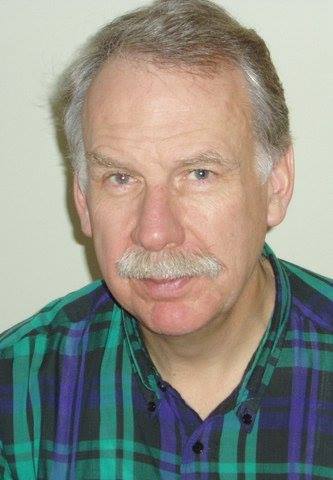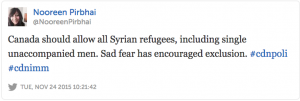Refugee resettlement partially delayed
Don Smith agrees with the Liberal government’s plan to take in 10,000 refugees before the end of the year and the remaining 15,000 in January and February of next year. The announcement was made Tuesday that the full number of refugees would not be brought in before the New Year.
Smith, in an interview prior to the announcement, said it’s not relevant when the government reaches its planned intake of 25,000 refugees. He said what’s important is to get the refugees here.
Smith is the chair of the Anglican group in Ottawa helping to bring in refugees — something it has been doing since the Vietnamese boat people crisis. Everybody working for the group is a volunteer. Prior to his retirement, he worked as a scientist for the Department of National Defense.
Refugees are “significantly less of a threat than the tens of thousands of visitors that enter Canada every day,” Smith said in response to the doubt that characterized the government’s plan to bring in refugees.
“You’ve got to remember that the vast majority of Canadians have no contact with refugees,” Smith said, explaining why they might be fearful. He added that Canadians might overestimate the potential threat of receiving refugees.
The government indicated that safety and security would be on top of their priority. All forms of security screening will be done overseas.
Ralph Goodale, the minister of public safety, said the government has a “robust and a multi-layered” approach to identify vulnerable applicants. It will make it difficult, if not impossible, for single straight unaccompanied men to benefit from the refugee push.
“In an effort to minimize security risks and provide a new home for vulnerable refugees, Canada has asked the UNHCR to prioritize vulnerable refugees who are a low security risk, such as women at risk and complete families,” a government release stated.
NDP leader Tom Mulcair told the CBC earlier that he has concerns about the rumoured plan to exclude men from the refugee effort.
“While security concerns remain of vital importance, will a young man who lost both parents be excluded from Canada’s refugee program?” he asked. “Will a gay man who is escaping persecution be excluded? Will a widower who is fleeing [ISIS] after having seen his family killed be excluded?”
Howard Duncan, an expert in diversity, migration and refugees at Carleton University, said the government’s pronouncement is an indication that they are worried about Canadians’ fear and are “trying to manage that fear to a lower level.”
“I don’t expect that any dangerous persons will arrive in Canada as refugees,” he said. He added that the security risk is low especially because the refugees will be screened by various agencies.
Before these announcements were made, there was debate as to the feasibility of getting 25,000 refugees into the country by the end of the year.
Smith’s refugee group has been working with Citizenship and Immigration Canada to sponsor refugees and help them settle in Canada. He said the group is still putting in applications as fast as the government is providing them.
The younger refugees that the group has sponsored have recorded more successes than the older ones, he said. Smith said some refugees who have been resettled by the group as children have graduated from the University of Ottawa and Carleton University, and one of them now works with the International Criminal Court in The Hague.




